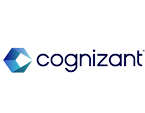B.Tech Civil Engineering (Smart Infrastructure and Construction)
Programme Overview
MIT-WPU offers a top-tier B.Tech programme in Civil Engineering (Smart Infrastructure and Construction) that blends traditional civil engineering principles with advanced technologies in construction. The programme covers core areas such as mechanics, materials science, surveying, and geotechnical engineering while introducing smart technologies to enhance design and construction processes.
The curriculum also delves into advanced topics like Environmental Engineering, Highway Engineering, and Construction Management. With a focus on creativity, analytical thinking, and a proactive approach, the programme equips you to tackle complex infrastructure challenges. Through interdisciplinary learning and innovative research, you’ll learn to design, build, and manage intelligent systems for development, transport, energy, water supply, and waste management, preparing you to lead in the era of smart infrastructure.
Major Tracks
- Advanced Transportation Engineering and Intelligent Transport System
- Sustainable Construction Materials and Management
- Water Resources, Remote Sensing & GIS
- Advanced Irrigation Technologies
- Robotics and Automation in Civil Construction
- Geotechnical and Foundation Engineering
- Structural Analysis and Design, Materials
- Infrastructure, Construction Engineering and Management
- Environmental Engineering
Duration & Fees
Duration
4 Years
Applications Open for 2026
Fee Per Year
₹ 3,00,000
Scholarship
| Scholarship for AY 2026-27 | JEE Main Percentile | MH-CET Percentile |
|---|---|---|
|
Dr. Vishwanath Karad Scholarship (100%) |
89 & Above |
90 & Above |
|
MIT-WPU Scholarship I (50%) |
87 & Above |
88 & Above |
|
MIT-WPU Scholarship II (25%) |
86 & Above |
87 & Above |
Note: Best of JEE 2026 or MHT-CET 2026 Score will be considered for availing the scholarship.
Terms & Conditions Apply:
- All Scholarships are awarded on a First Come First Serve basis. All Scholarships are awarded as fee adjustments.
- To continue the scholarship for the entire duration of the programme, a minimum level of the academic score has to be maintained at an 8 CGPA across all semesters, attendance is to be maintained at a minimum of 80 percent, with no live backlogs in any subject/programme and no semester break, and there should be no disciplinary action against the student.
For more detailed information visit our website: https://mitwpu.edu.in/scholarships
Eligibility
A minimum of 50% aggregate marks in Class 10+2/ HSC, with English as a compulsory subject and A minimum of 50% aggregate marks in any one of the following subject groups:
- PCM (Physics, Chemistry, Mathematics),
- Physics & Mathematics with any Technical Vocational Subject
- PCB* (Physics, Chemistry, Biology*),
[*Biology/Biotechnology is applicable only for the Bioengineering Programme.] (Minimum 45% aggregate marks for candidates belonging to the Reserved Category from Maharashtra State).
OR
A minimum 60% aggregate marks in a Diploma in Engineering & Technology in a relevant branch from a government-approved technical board.
Selection Process
Admissions are based on the scores of JEE 2026/ MHT-CET 2026/ PERA-CET 2026, or MHT-CET-B* 2026/ NEET 2026* (*applicable only for the Bioengineering programme), along with a 500-word Statement of Purpose (SOP) written by the candidate
Programme Highlights
- Hands-on Training : Get practical experience with advanced tools like AutoCAD, Revit, Primavera, STADD PRO, BIM, and IoT, which are essential for modern civil engineering projects.
- Industry Interaction : Engage with industry experts through guest lectures, seminars, workshops, and visits to leading organisations in civil engineering.
- Industry Exposure : Benefit from hands-on learning opportunities and national or international immersion programmes to broaden your industry knowledge.
- All-Round Placement Assistance : MIT-WPU’s CIAP ensures comprehensive support for internships and placements, connecting you with top companies for real-world experience.
- Entrepreneurship Support : The MIT-WPU Technology Business Incubator (TBI) offers mentoring, funding, and community access to help you grow your entrepreneurial ventures.
- Research & Development : Stay ahead in the field with collaborations and partnerships that offer opportunities for internships, placements, and cutting-edge research from the very start of your journey.
Programme Structure
| Semester | Course Type | Course Name/Course Title | Total Credits |
|---|---|---|---|
|
I |
UC | Indian Constitution | 1 |
|
I |
UC | Environment and Sustainability | 1 |
|
I |
UC | Yoga - I | 1 |
|
I |
UC | Social Leadership Development Program | 1 |
|
I |
UC | Financial Literacy | 1 |
|
I |
PF | Linear Algebra & Differential Calculus | 3 |
|
I |
PF | Engineering Chemistry | 3 |
|
I |
PF | Engineering Physics | 3 |
|
I |
PF | Ideas and Innovation in Manufacturing | 1 |
|
I |
PM | Engineering Mechanics | 4 |
| I | PF | Programming and Problem solving | 3 |
| Total Credits: | 22 |
| Semester | Course Type | Course Name/Course Title | Total Credits |
|---|---|---|---|
|
II |
UC | Yoga - II | 1 |
|
II |
UC | Co-creation | 1 |
|
II |
UC | AI for everyone | 2 |
|
II |
UC | Foundation of Peace | 2 |
|
II |
UC | Indian Knowledge System (General) | 2 |
|
II |
UC | Sports | 1 |
|
II |
PF | Integral Calculus | 3 |
|
II |
PF | Biology for Engineers | 2 |
|
II |
PF | Engineering Graphics | 3 |
|
II |
PF | Basics of Electrical and Electronics Engineering | 3 |
|
II |
PM | Surveying Field Practices | 2 |
| Total Credits: | 22 |
| Semester | Course Type | Course Name/ Course Title | Total Credits |
|---|---|---|---|
|
III |
UC | Spiritual and Cultural heritage: Indian Experience |
2 |
|
III |
UC | Research Innovation Design Entrepreneurship (RIDE) |
1 |
|
III |
UE | University Electives - I |
3 |
|
III |
PF | Calculus and Numerical Methods |
4 |
|
III |
PM | Strength of Materials |
3 |
|
III |
PM | Fluid Mechanics |
3 |
|
III |
PM | Smart Infrastructure Engineering |
2 |
|
III |
PF | IOT for Smart and Intelligent buildings |
1 |
| III | Program Capstone Project/ Seminar and Internships | Building Planning and CAD | 3 |
| Total Credits: | 22 |
| Semester | Course Type | Course Name/ Course Title | Total Credits |
|---|---|---|---|
|
IV |
UC | Rural Immersion | 1 |
|
IV |
UC | Life Transformation Skills | 1 |
|
IV |
UE | University Electives - II | 3 |
|
IV |
PF | Indian Knowledge System (Sci. & Tech). | 2 |
|
IV |
PF | Probability and Statistics for Civil Engineers | 4 |
|
IV |
PM | Surveying and Geomatic Engineering | 3 |
|
IV |
PM | Structural Analysis I | 3 |
|
IV |
Program Capstone Project/ Seminar and Internships | Design Thinking | 2 |
|
IV |
PM | Concrete Technology | 3 |
| Total Credits: | 22 |
| Semester | Course Type | Course Name/Course Title | Total Credits |
|---|---|---|---|
|
V |
UC | Managing Conflicts Peacefully: Tools and Techniques |
2 |
|
V |
UE | University Electives - III | 3 |
|
V |
PE | Program Elective - I | 4 |
|
V |
PM | Design of Steel Structures | 3 |
|
V |
PM | Project Management | 3 |
|
V |
PM | Structural Analysis II | 3 |
|
V |
Program Capstone Project/Seminar and Internships | Civil Engineering Softwares | 2 |
|
V |
Program Capstone Project/Seminar and Internships | Data Science for Engineers | 1 |
| Total Credits: | 21 |
| Semester | Course Type | Course Name/Course Title | Total Credits |
|---|---|---|---|
|
VI |
UC | National Academic Immersion Program | 2 |
|
VI |
PE | Program Elective - II | 4 |
|
VI |
PF | Soil Mechanics | 3 |
|
VI |
PF | Transportation Engineering | 3 |
|
VI |
PM | Design of Reinforced Concrete Structures | 3 |
|
VI |
PM | Water and Waste Water Engineering | 3 |
|
VI |
Program Capstone Project/Seminar and Internships | AIML in Infrastructure Engineering | 1 |
|
VI |
Program Capstone Project/Seminar and Internships | Mini Project | 1 |
| VI | Program Capstone Project/Seminar and Internships | BIM in Civil Engineering | 2 |
| Total Credits: | 22 |
| Semester | Course Type | Course Name/Course Title | Total Credits |
|---|---|---|---|
|
VII |
PE | Program Elective - III | 4 |
|
VII |
PM | Foundation Engineering | 3 |
|
VII |
PM | Pavement Material Charecterization | 1 |
|
VII |
PM | Dams and Hydraulics Structures | 3 |
| VII | PM | Quantity Surveying and Estimation | 3 |
| VII | Program Capstone Project/Seminar and Internships | Computer aided prestressed concrete design | 3 |
| VII | Program Capstone Project/Seminar and Internships | Capstone project | 2 |
| Total Credits: | 19 |
| Semester | Course Type | Course Name/Course Title | Total Credits |
|---|---|---|---|
|
VIII |
PE | Program Elective - IV |
4 |
|
VIII |
Program Capstone Project/Seminar and Internships | Hydrology and Irrigation Engineering |
3 |
|
VIII |
Program Capstone Project/Seminar and Internships | AI in Civil Engineering |
2 |
| VIII | Program Capstone Project/Seminar and Internships | Internship | 6 |
| Total Credits: | 15 |
Career Prospects
Site Engineer, Construction Management Consultant, and Project Manager
Structural Consultant, Structure Designer, and Surveying Consultant
Transportation Engineer for Highways, Railways, Runways, and Bridges
GIS Analyst, Town Planner, and Quantity Surveyor
Opportunities in Government Jobs such as Indian Engineering Services, State-Central Engineering Services, CPWD, BRO, and AAI
Programme Outcomes
- Create systems tailored to specific needs while addressing health, safety, and environmental concerns harmoniously.
- Apply cutting-edge technologies like IoT and predictive modelling to tackle complex engineering challenges.
- Incorporate societal, legal, and ethical considerations into your professional practices for holistic problem-solving.
- Simplify complex ideas, excel in project management, and stay committed to lifelong learning for continuous improvement.
Placements & Recruiters
100% Placement Assistance
Top Recruiters
FAQs
- Industry-Relevant Curriculum : The programme is aligned with industry trends and focuses on emerging technologies like IoT, AI, and smart construction techniques.
- Emphasis on Research : Collaborate with experienced faculty on innovative research projects or explore your own ideas.
- World-Class Infrastructure : Access cutting-edge labs and tools to enhance practical learning and technical expertise.
- Internships at Leading Industry Players : Gain hands-on experience and real-world exposure through internships with top organisations.
- Holistic Growth : Develop both technical and soft skills, preparing you for leadership roles in infrastructure projects.
Job opportunities for graduates of B.Tech Civil Engineering (Smart Infrastructure and Construction) are excellent in both public and private sectors. Top construction companies, urban planners, and civil engineering firms actively recruit graduates specialised in Smart Infrastructure and Construction.
Popular Recruiters : Larsen & Toubro, TATA Projects, Shapoorji Pallonji, and Reliance Infrastructure actively recruit smart infrastructure and construction graduates. Additionally, government agencies like CPWD, BRO, and AAI also hire these graduates for key roles.
Internship Opportunities : MIT-WPU collaborates with over 1,600 industry connections through its CIAP Cell. This provides students with practical industry training and hands-on experience before graduation, preparing them for diverse job roles.
B.Tech Smart Infrastructure and Construction Engineering builds on the same foundational principles as B.Tech Civil Engineering but takes a more specialised approach. It focuses on growing sectors like smart cities, sustainable infrastructure, and advanced construction technologies, equipping you with the skills needed to address modern infrastructure challenges. This specialisation makes you job-ready for high-demand roles in rapidly evolving industries.
- Advanced Topics : The programme integrates cutting-edge technologies like smart infrastructure, IoT, and AI, aligning with the global need for efficient and sustainable urbanisation.
- Specialised Knowledge: It provides an in-depth focus on infrastructure systems such as transportation, water resources, and geospatial data analysis, paving the way for career growth in urban planning, construction management, and related fields.
- Career Opportunities: While B.Tech Civil Engineering covers a broad range of topics, Smart Infrastructure and Construction engineers are in high demand for roles in urbanisation, smart cities, and sustainable infrastructure development.
You can go for B.Tech Smart Infrastructure and Construction Engineering if you want to work on high-tech future-oriented infrastructure projects.
Yes, you can pursue an M.Tech in Civil Engineering or related specialisations like Structural Engineering, Environmental Engineering, or Urban Planning after completing a B.Tech in Civil Engineering (Smart Infrastructure and Construction Engineering). The foundational knowledge gained during this undergraduate programme provides a smooth transition to advanced studies in construction management, geotechnical engineering, or sustainable infrastructure.




















 admissions@mitwpu.edu.in
admissions@mitwpu.edu.in
